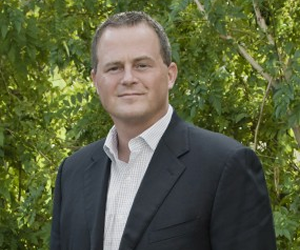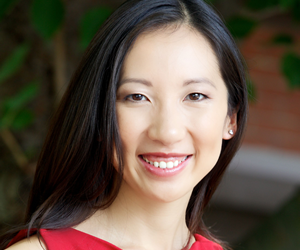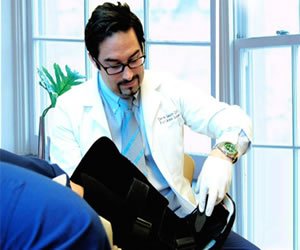At this past year’s UC Davis Pre-Health Conference, Stanford Health Care’s Chief of Staff, Dr. Mark Welton headlined three popular sessions. His talks centered on what a chief of staff is, how you get to be chief of staff, and what we need to do to maintain health care costs.
No one would have guessed that back in the 1970’s, on this same campus, the distinguished physician and leader was told he’d never make it through UC Davis’s pre-med program, let alone get into medical school.
“I struggled through some of the classes,” Walton, who is also the Chief of Colon and Rectal Surgery, admits. Lucky for the medical profession, he not only managed to make it through pre-med, but successfully finished medical school at UCLA and completed a fellowship in colon and rectal surgery at Washington University. After teaching at University of California, San Francisco for 8 years, Walton transitioned to Stanford in 2001 and has been there ever since.
healthcare
Breaking Bad (News, That Is)
My stomach sunk. The results of the biopsy were back and it was not good. I had met Ms. Jones eight days ago when she was admitted for a pneumonia that antibiotics couldn’t seem to shake. Once hospitalized, we’d brought out the big guns and she had been clinically improving on that well-loved duo of vanc and zosyn. (Med students take note: vanc/zosyn is almost always an acceptable answer when pimped about which antibiotics to start – they may be overkill, but you’re unlikely to be wrong.) Despite her improvement, things had not been adding up – we kept putting 2 and 2 together and getting 6. A young woman in her late 30s, she had no good reason to have this month-long pneumonia and her chest x-ray looked, in a word, terrible. Even I as an intern could see that what had been a right middle lobe infection when she first presented a month ago was now also in her upper lobes and – oddly – her left lung was looking increasingly cloudy.
Take It From Me…
About to head out on some interviews? First spend some time with these physicians as … Read more
Barbara Ross Lee: The Beauty of the Broken-Field Run
There’s no doubt that Dr. Barbara Ross Lee has led a distinguished career. The first African-American woman to be appointed Dean of a medical school, her other accomplishments include participation in the Robert Wood Johnson Health Policy Fellowship and garnering numerous awards. But for Ross, the path to success was full of twists and turns.
“At my institution, we call it the ‘broken field run’,” she told Student Doctor Network during an interview at the 2014 UC Davis Pre-Health conference. “It wasn’t as if I (had the typical path and) went to school and did pre-med and then went to medical school and then went into post-graduate training. I went to undergrad, then I got a job, then I got married, had kids, then I went back and got a masters, and then the opportunity arose for me to go to medical school.” And that’s just the beginning of her storied career.
Mission Medicine
Lucy Doyle, M.D., had never imagined that life after residency could be so hard. But … Read more
Of Capacity and Communication
I am about 45 minutes from the end of my night float shift, that dangerous hour all residents learn to wait through with baited breath, when my pager goes off. Pushing the button to silent its insistent beep, I read the text: “STAT 4-9876.” I am slightly bemused. STAT pages in psychiatry are few and far between. If one of the patients on the psych floor has had an MI, stroke, or something else that necessitates an immediate response, I may be the last to find out, as the nurse will often call a code and bring a medicine team running before letting me know what is going on. Even a consult for a suicidal patient on a medicine floor, considered a psychiatric emergency, doesn’t exactly necessitate the same sort of urgency as anaphylaxis or an acute abdomen. I like pondering and deliberation, making me naturally suited for psychiatry. Rather than engendering excitement, the word STAT makes my blood run a little cold. Besides, I typically assume that if someone is paging me, urgency is implied, and I return the call immediately; the two year old inside me smarts at being told to hurry up.
A Clear Vision: A Conversation with John Flanagan, Dean, UC Berkeley School of Optometry
When John Flanagan was 5 years old, he began suffering from migraines. “One of the … Read more
Talking to Parents About Vaccines
Well Baby visits can be stressful for both physicians and the new parents – not … Read more
Hospitalists "Seeing Wisely": A High Value Proposition
I remember being a third year medical student and reading Bob Wachter’s piece in the New … Read more
Humane Medicine
Republished with permission from here. “What can you do here that we can’t do at home?” … Read more
20 Questions: Kent A. Kiehl, PhD – Criminal Psychopathy
Dr. Kent Kiehl is an associate professor in the department of psychology at the University … Read more
When Doctors Listen: A Conversation with Dr. Leana Wen
Dr. Leana Wen was on a roll. The Washington University medical student was president of … Read more
20 Questions: Devon Glazer, DPM, FACFAS, FAAFAS
Devon Glazer, DPM, Fellow of the American College of Foot and Ankle Surgeons (FACFAS) and … Read more
Finding the Joy in Medicine: A Conversation with Dr. David A. Fleming
Despite being the current President of the American College of Physicians (ACP), David A. Fleming, … Read more
Coming to a Future Near You: Neuromodulation, a Multi-Specialty Field
Neuromodulation is an exciting therapy for improving neurological ailments. When I graduated medical school in … Read more
Leveraging Pre-Med Learning Experiences for Success
Pre-medical students can – and should – take advantage of the many opportunities available to … Read more
A Day in the Life of a Young Hospitalist
I am a young hospitalist who is 16 months into my role at an urban … Read more
Doing Small Things Great: A practical guide to contributing to your team as an MS3
“Go forth and do great things.”
– Anonymous
No one gets into medical school without a considerable dose of ambition. We want to be involved, to make a difference, to save lives. In short, we want to do great things. We spend years waiting in the wings, our enthusiasm funneled into pre-med activities, o chem exams, and countless hours of studying in the first two years of medical school. Like a horse that has been held tightly in the starting gate that suddenly swings up at the sound of the starter’s bell, we spring forward with unbridled enthusiasm into third year, dirt flying. Having spent nearly a decade in prep (if you start counting in undergrad), we are eager to actually do something and start making a difference. And yet, so much of third year can be sitting around, waiting for the action, and, when the action happens, standing in the back of the room.
How International Experiences Can Enrich Your Studies as a Pre-Health Student
You’ve volunteered. You get good grades. You’ve shadowed doctors. You’ve done everything you can to be a great student and ideal candidate for professional schooling. What more can you do to make yourself stand out from the crowd? For starters, you can participate in an international internship and shadow doctors in another country! Here are a few ways in which adding an international component adds value to what you are already doing:
Obtain Transferrable Medical Experience
Whether or not a program offers credit, participating in a pre-health internship abroad will be a unique experience that will give you plenty of subject matter to talk about in interviews. You will be able to see what life is like for a foreign doctor, and sometimes you may be able to observe more than you may see shadowing doctors back in your home country, such as observing a number of surgeries firsthand. Having this opportunity is a great way to get more direct observation experience outside of the classroom.
Self-Care in Medical School: A Lesson from the Heart
As a first-year medical student only a few weeks into gross anatomy, I still have … Read more




















